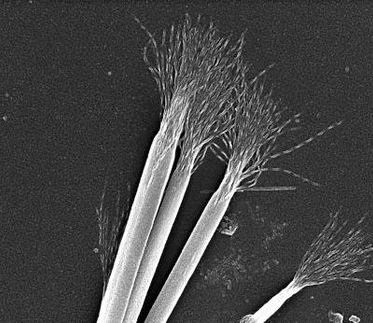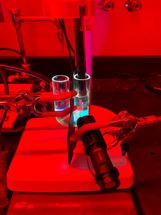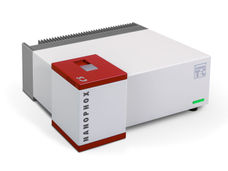Dolomite's Microfluidics Technology Enables Nanoparticle Synthesis
dolomite have announced that they have been working with Newcastle University as part of a project to explore the application of microfluidics for the synthesis of nanoparticles for use in biochemistry.
Microfluidics, often called lab-on-a-chip, is a new field of science and engineering that enables very small-scale fluid control and analysis, allowing instrument manufacturers to develop smaller, more cost-effective and more powerful systems. With lab-on-a-chip technology, entire complex chemical management and analysis systems are created in a microfluidic chip and interfaced with, for example, electronic and optical detection systems.
For this project Dolomite created a custom glass microchip with multiple reaction chambers. This was manufactured undertaking processes such as lithographic patterning, isotropic etching of glass substrates and the accurate thermal bonding of glass substrates.
"The manufacture of this type of device is a very complex process," said Dr Gillian Davis, Commercial Director at Dolomite. "However, microfluidics offers high efficiency, versatility, speed, and economy of analysis. This technology also has a very low consumption of reagents and analytes, so it brings both cost and environmental benefits to bioscience and drug discovery projects. Furthermore, its greatest advantage is the ability to perform parallel-array or multidimensional types of analyses in a small localised environment."
The nanoparticle synthesis project at Newcastle University is headed by Mike Loughran, Team Leader Microfluidics & Sensor Technologies, at the School of Chemical Engineering and Advanced Materials. Working with Dolomite and Dr Andrea Beck from HAS Budapest, Mike Loughran has been exploring, how in the future, scientists will be able to control specific chemical reactions in a localised microchip environment, enabling different nanoparticles to be designed for a specific purpose e.g the synthesis of silicon based fluorescent nanoparticles (quantum dots) to label biomolecules for diagnostic assays, polymeric nanosensors for intracellular analysis and drug delivery, and catalytic nanoparticles for specific chemistries or for purification by adsorbing pollutants.
These products might interest you
See the theme worlds for related content
Topic world Synthesis
Chemical synthesis is at the heart of modern chemistry and enables the targeted production of molecules with specific properties. By combining starting materials in defined reaction conditions, chemists can create a wide range of compounds, from simple molecules to complex active ingredients.

Topic world Synthesis
Chemical synthesis is at the heart of modern chemistry and enables the targeted production of molecules with specific properties. By combining starting materials in defined reaction conditions, chemists can create a wide range of compounds, from simple molecules to complex active ingredients.
































































